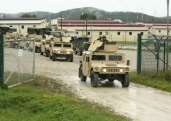The Economic and Social Council (CES) recently launched, at the Government headquarters, the study "Migration of third-country nationals in Romania: integration into the labor market and the risks of labor exploitation", which sheds light on both the identified problems and possible solutions, according to a press release sent to AGERPRES on Wednesday.
"Noting that Romania is becoming an emerging destination for migrant workers, especially from South and Southeast Asia, the CES draws attention to the fact that, although this workforce alleviates an acute structural deficit, the phenomenon is accompanied by significant vulnerabilities related to labor exploitation and precarious integration. The identification of these challenges was the basis for the development of the study," the council's representatives claim, agerpres reports.
"Noting that Romania is becoming an emerging destination for migrant workers, especially from South and Southeast Asia, the CES draws attention to the fact that, although this workforce alleviates an acute structural deficit, the phenomenon is accompanied by significant vulnerabilities related to labor exploitation and precarious integration. The identification of these challenges was the basis for the development of the study," the council's representatives claim.
According to the President of the CES, Sterica Fudulea, the study reflects the balanced perspective of the three parties represented in the CES Plenary - employers' associations, trade unions and non-governmental civil society organizations - and highlights both the problems identified by them and the possible solutions.
"Among the main challenges reported are the risks of xenophobia and discrimination, non-compliance with labor legislation and international standards regarding the protection of workers, as well as difficulties related to professional training and retention of foreign labor, despite the high costs involved. As for solutions, measures are proposed such as supporting counseling centers, cultural mediation and legal assistance for migrant workers, intensifying control actions and improving inter-institutional cooperation, digitalizing the entire labor recruitment process, multilingual information campaigns and creating secure and confidential channels for reporting abuses and concluding agreements between Romania and the countries of origin of workers," the document also reads.
The CES study shows that Romania needs coherent integration policies and firm mechanisms to prevent exploitation, so that migrant work is not only "a solution to the labor shortage, but also a safe, fair and dignified process for all." "For this, we need digitalization, better recruitment processes, strengthening the capacity of responsible institutions, but also facilitating access to specialized services for migrants," the cited source mentions.
At the same time, the President of the ESC emphasized the need for the studies and viewpoints developed by the ESC to constitute the foundation of future public policies developed at national and European level, given that they reflect the perspective of organized civil society.
































Comentează